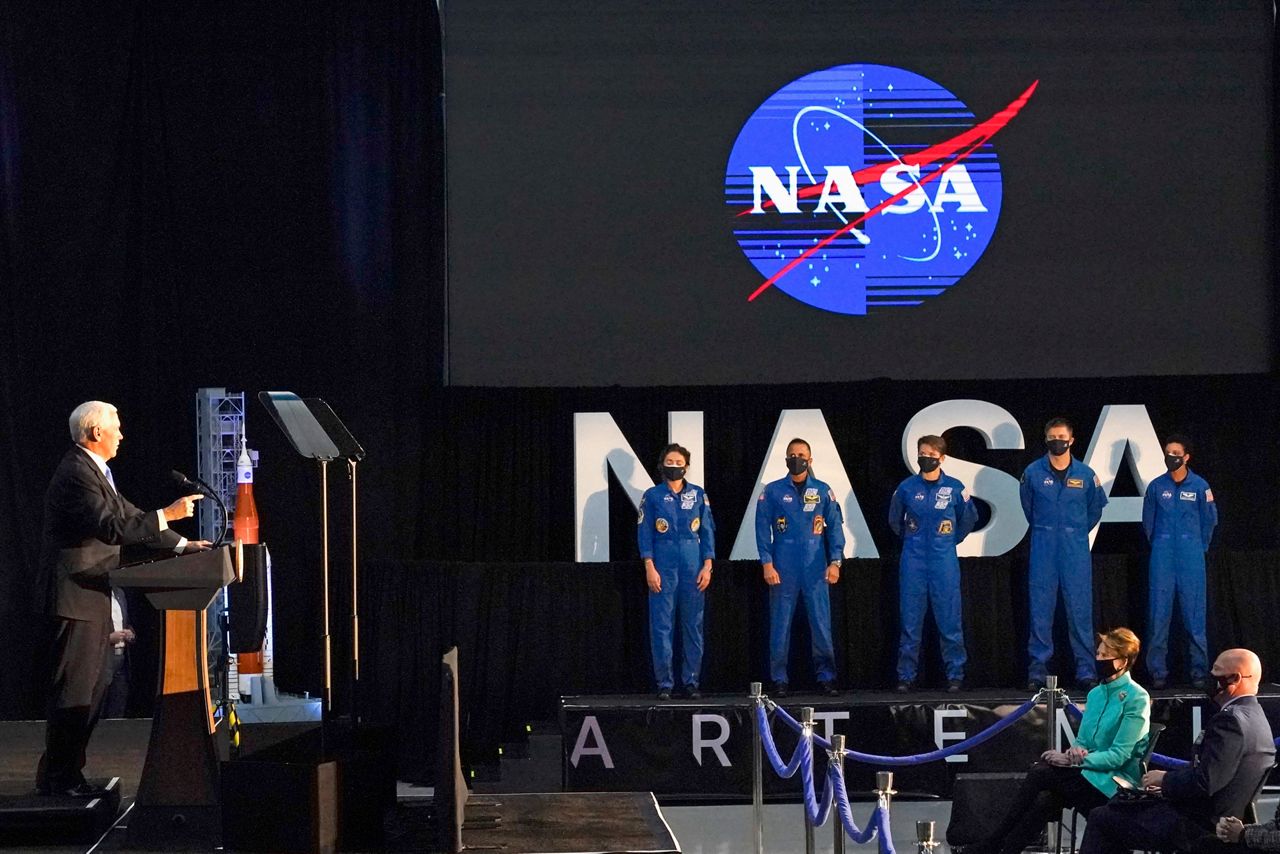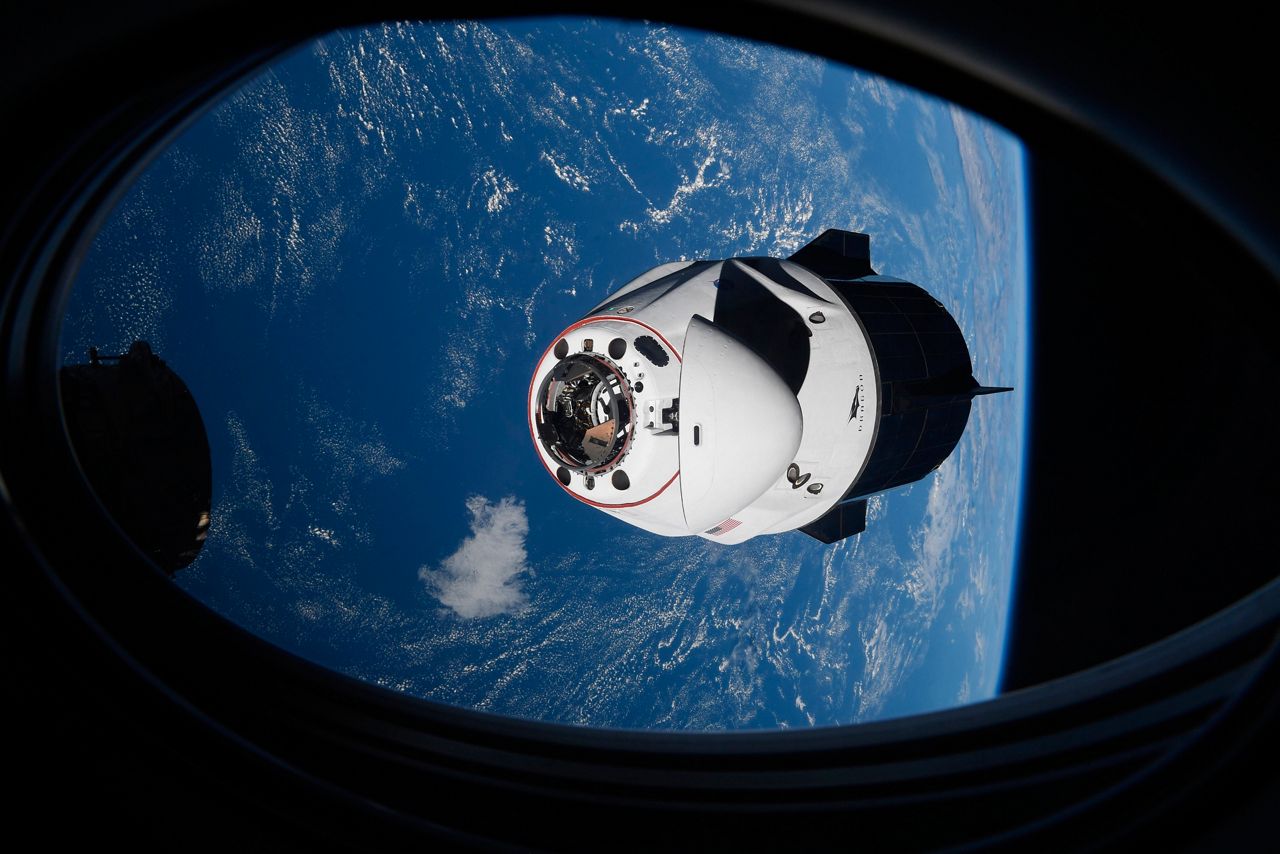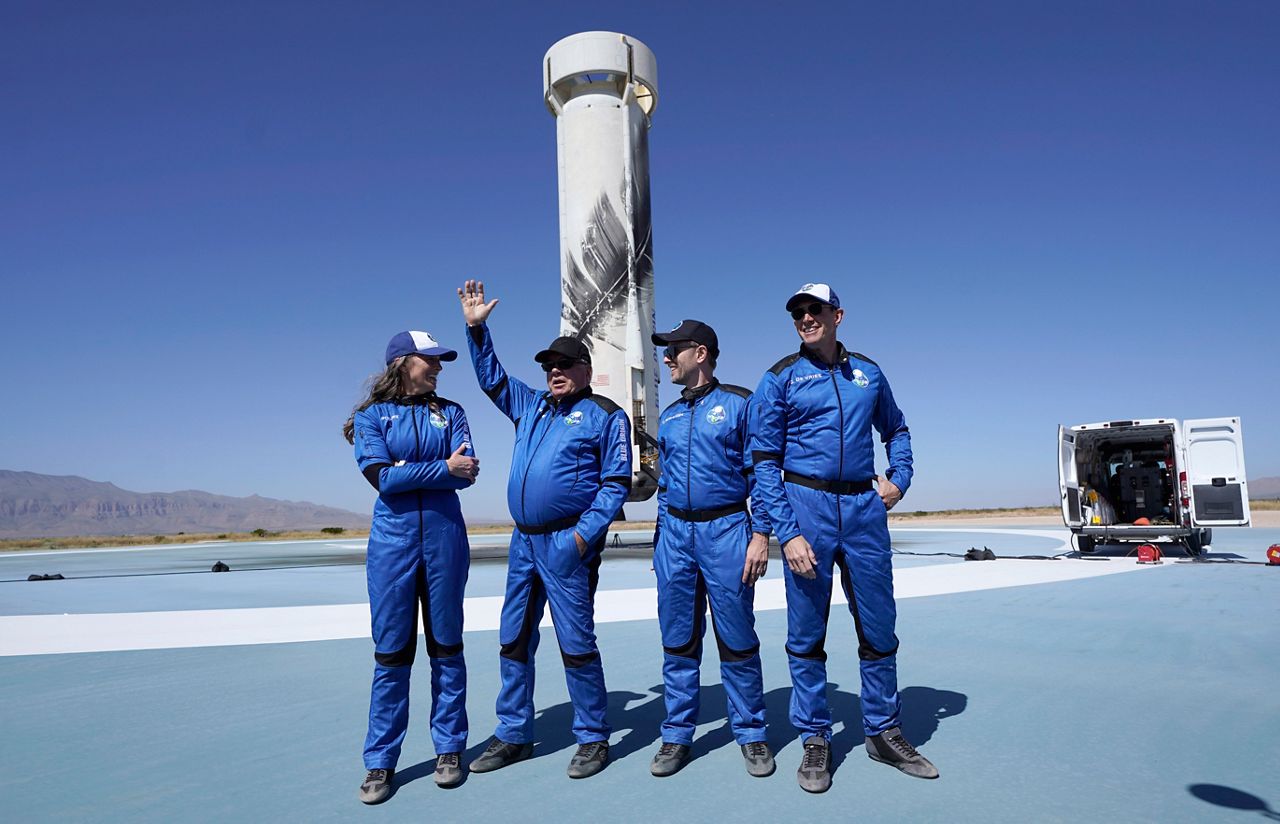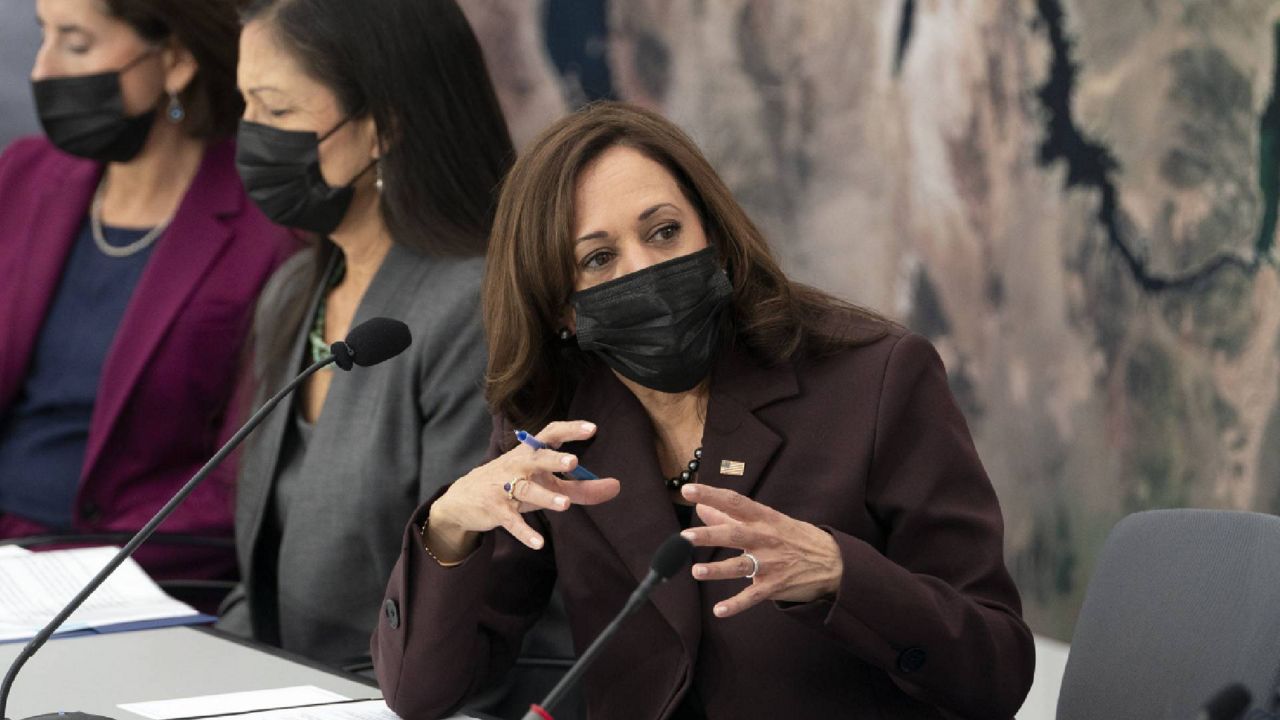Vice President Kamala Harris convened her first meeting as chair of the National Space Council (NSpC) on Wednesday, the first gathering of the group in nearly a year and one that comes amid a new era of commercial spaceflight and security concerns about Russia and China’s own ambitions beyond Earth’s atmosphere.
Ahead of the meeting, President Joe Biden signed an order to expand the council to include four more cabinet officials — secretaries of the departments of Labor, Agriculture, Education and the Interior — as well as National Climate Advisor Gina McCarthy.
Opening the conversation Wednesday afternoon, Harris highlighted the need to use space to fight climate change, boost STEM education and establish international standards for spacefaring nations.
"In this new era, we must see all the ways in which space can benefit Earth," she said. "Today, our nation and our world is more active in space than ever before."
"The opportunity of space has been clear, as has the risk," she added of the security concerns due to recent activity from Russia and China. "Without clear norms for the responsible use of space, we stand the real risk of threats to our national and global security."
The White House also released a new Space Priorities Framework on Wednesday to inform the goals of the council.
The Biden administration in March announced it would maintain the group, after it was revived in 2017 under then-president Donald Trump and chaired by vice president Mike Pence, who hosted eight meetings over the course of his term and was heavily involved in the project. The council includes cabinet secretaries plus U.S. space, commerce, defense, intelligence and security officials.
The meeting led by Harris on Wednesday afternoon is expected to build on many of the space policy goals of the Trump administration, which were last published in 2020 and included a boost in commercial space exploration, greater international cooperation and the creation of a sustained human presence on the moon.
“There'll be quite a bit of overlap,” said Eric Stallmer, who oversees government affairs for Voyager Space Holdings and also serves on the space council’s advisory group.
“The administration realizes that some of those policy directives were needed, and they were well thought out, and they'll probably keep those.”
In his final NSpC meeting, Pence announced the 18-astronaut team for the Artemis Program, which aims to put people back on the moon, an ambitious goal he challenged NASA to complete by 2024 and one Harris could mention on Wednesday.

But the Biden administration will now put additional emphasis on education, building a space labor force, diversity and the ways that space can inform the study of climate change, especially as it impacts underserved communities.
"Our planet is fragile," Harris said Wednesday. "Through our work in space, we have an opportunity to benefit not only the American people but all of humanity."
Harris’s two other core assignments from the president — addressing the root causes of migration at the border and overseeing the push for voting rights — have proven difficult to unsnarl.
The National Space Council includes top officials like the secretaries of state, defense, commerce, transportation and energy plus the national security advisor, director of national intelligence and NASA administrator, among other top White House advisors.
“The space council is, in a sense, everyone who has a stake in space,” said Dean Cheng, a senior fellow at the Heritage Foundation and expert on China’s military and space capabilities.
“Space touches everything,” said Cheng, who is also a member of the space council’s advisory group.
GPS satellites, for example, play a key role in tracking shipping containers around the world and at ports, which is currently critical amid ongoing supply chain issues.
Wednesday’s meeting also comes as both Russia and China are also developing their own ambitions beyond the planet, putting national security top of mind for the council as Harris steps in.
In mid-November, a Russian anti-satellite missile test sent thousands of pieces of debris close to the International Space Station, endangering the astronauts working there in a move the U.S. called “dangerous and irresponsible.”
And China alarmed defense officials in October when it sent a hypersonic missile with nuclear capability into orbit.
The policy framework released Wednesday outlines a goal of getting to "a more resilient national security space posture" and a stronger U.S. "ability to detect and attribute hostile acts in space." The document doesn't mention any country by name.
“We face real challenges in space, from the growing problem of orbital debris to the increased militarization of space in light of recent weapons tests by China and Russia,” Senator Cynthia Lummis, the top Republican on the Subcommittee for Space and Science, said in a statement to Spectrum News on Tuesday.
Lummis and a bipartisan group of her colleagues recently wrote letters urging Vice President Harris and the Department of Commerce to tackle the issue of space debris, especially after the Russian missile test.
Secretary of Commerce Gina Raimondo called the incident a "wake-up call," on Wednesday, and Deputy Secretary of Defense Kathleen Hicks said it "demonstrates the potential deadly effects" when space standards are not shared internationally.

Space has already become another frontier for U.S.-China competition, Cheng said, and the United States’ efforts will be closely watched by Beijing, including the uncertain goal of getting humans on the moon in the next three years.
“The Chinese look at our declarations when we say we are going to go back to the moon in 2024 and then are unable to,” he said. “What does that say about American competency? American ability? American commitment?”
Meanwhile, the commercial space industry is at a peak as the potential for civilian spaceflight grows, marked by the first all-civilian launch by SpaceX in September.
“This is just an unparalleled time,” Stallmer said. “I think the U.S. should continue to take that leadership role in what we put up there, and what comes down.”
“The partnership between government and industry, I think, has never been better,” he added. “And we want to continue that moving forward.”
The White House framework released Wednesday aims for the U.S. to "foster a policy and regulatory environment" for a "competitive and burgeoning" commercial space sector.

While the core priorities of the National Space Council may stay consistent under the Biden administration, its overall structure could shift.
For now, the advisory group for the council — which includes Stallmer and Cheng — has 27 members who were chosen under former president Trump, with representatives like former astronaut Buzz Aldrin as well as politicians and advisers from the military, space industry and academic world.
One of Harris’s goals for the advisory group is to improve diversity, the council’s executive secretary Chirag Parikh said in September, and he put out a call for new members that month.



